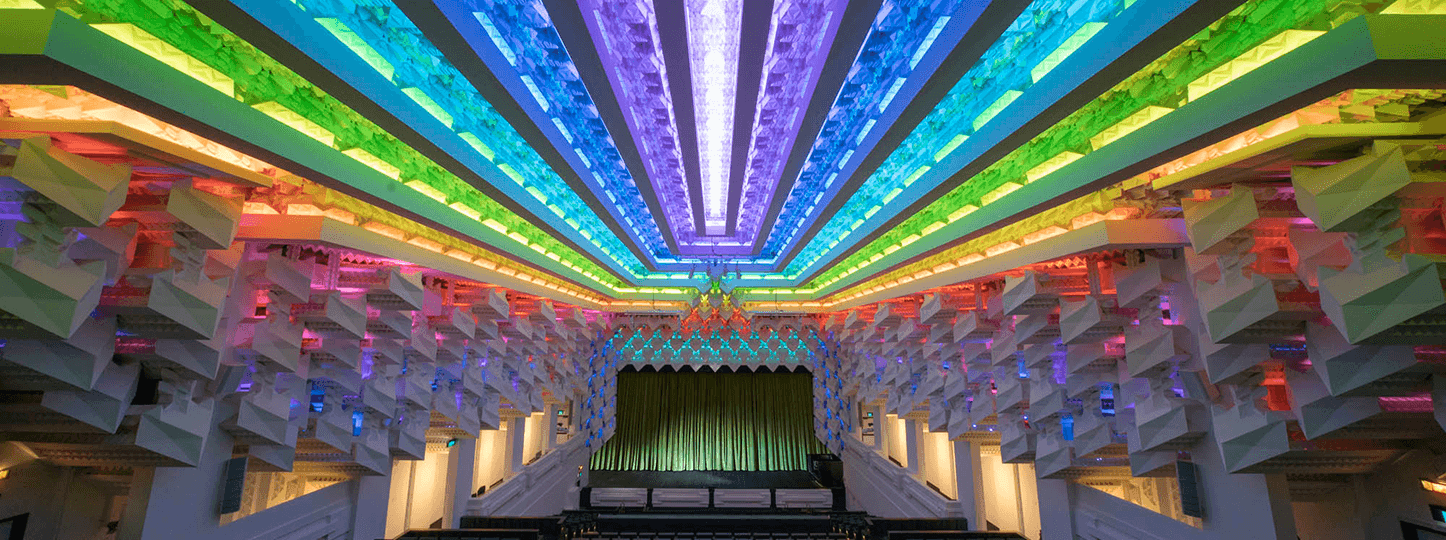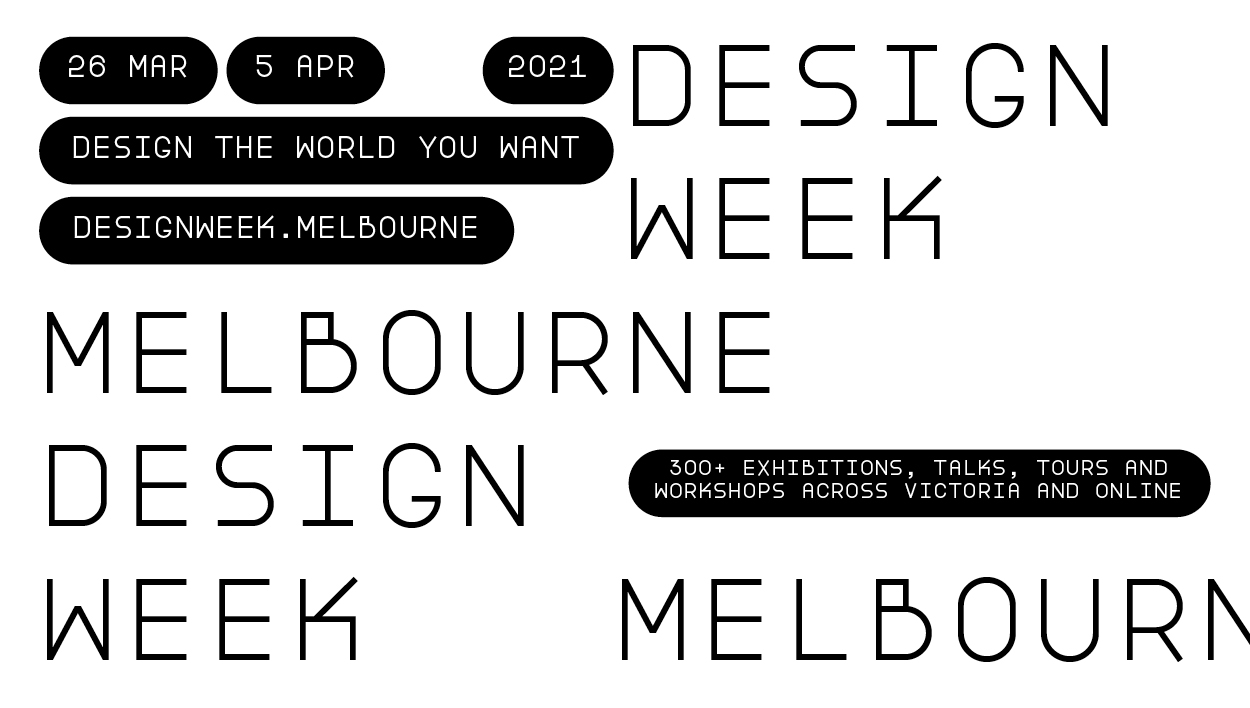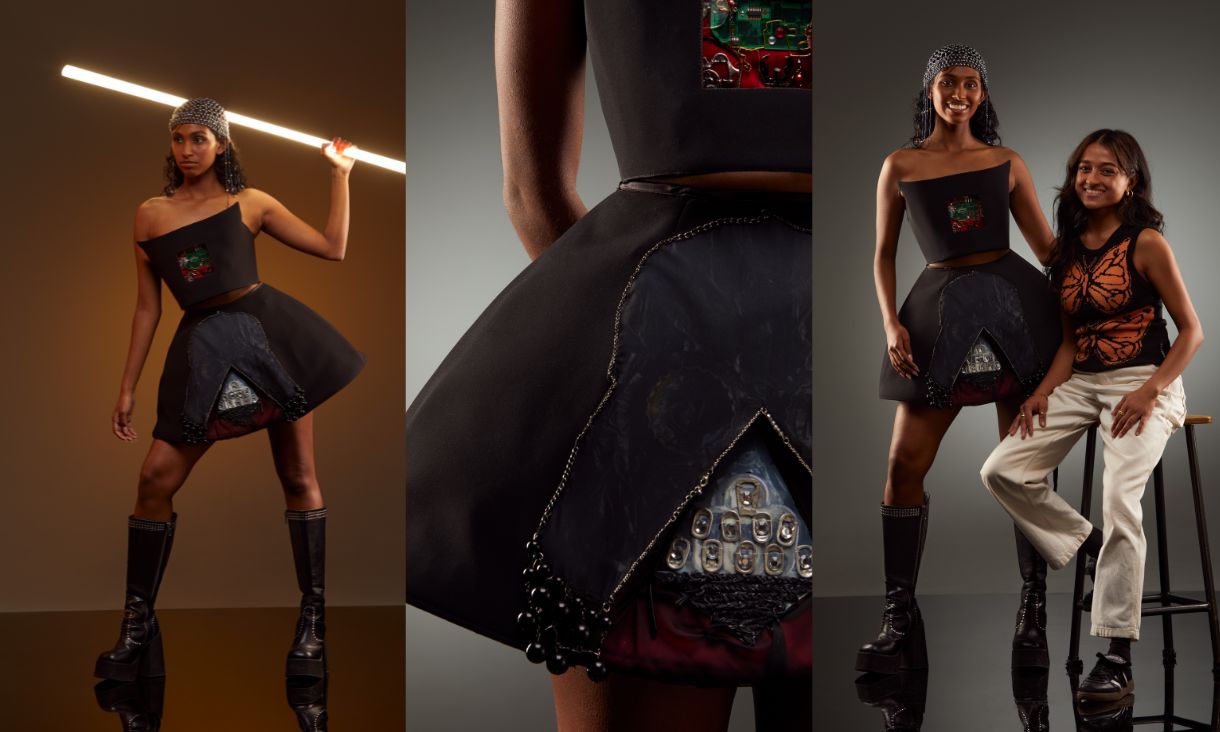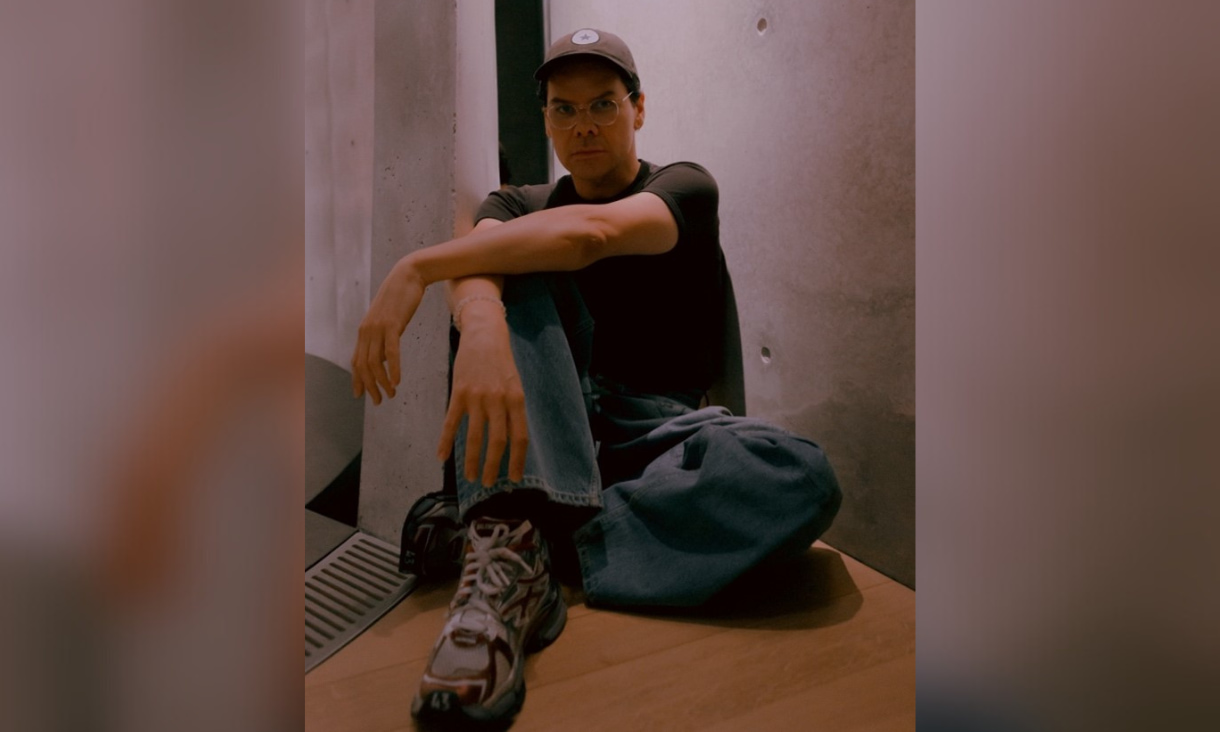The world relies on quality topsoil to grow 95 percent of our food.
But intensive farming practices and human activity mean that in 60 years, the world could run out of the vital non-renewable resource.
Green Renaissance is a dystopian exploration of the future of food and farming in 2090. Below is an excerpt from their event listing:
'There’s levitating organic structures controlled by artificial intelligence to avoid contamination from our toxic environment, ensuring the survival of the human race in a land made barren by our own doing.'
The exhibition is designed by RMIT’s Master of Design Innovation and Technology students Shanshan Wei, Mengke Lian and Haonan Ma, building on the design studio led by Dr Ollie Cotsaftis.
The exhibition is at the Queen Victoria Market via Queen Street, with a supplementary event at The Capitol on 1 April as a platform for a conversation on the future of food and farming.
More information can be found here.
Highlights of RMIT-involved events include Polar Patterns, an immersive and visceral experience of the extreme forces shaping Antarctica; A panel discussion for the book ‘Kerstin Thompson Architects: Encompassing People & Place’, moderated by Virginia Trioli; Counterfactual City, a series of alternative visions for the future city that are predicated a singular ‘what if?’ scenario; and 64 Ways of Being, an AR app that brings Melbourne’s parks, streets, rivers and laneways to life to create a conversation with the city.
MDW @ The Capitol
For the first time, The Capitol and RMIT Culture join with NGV to present MDW @ The Capitol RMIT.
They’re hosting an assortment of talks, films, book launches and installations across the 11 days.
Part of MDW @ The Capitol is ‘Past Futures: Dystopias, Utopias and Back to Futurism on Screen’ – a program presenting 10 visionary science fiction films.
Creative Producer at The Capitol, Ghita Loebenstein, said the curated sci-fi films were not the typical intergalactic space-wars type.
“We look away from the stuff of shiny space wars, and towards a survey of the social, political, technological, environmental, interpersonal and existential prophesies dreamed onto the cinema screen over the last century,” Loebenstein said.
“The curated titles awakened a curiosity in us by way of each film’s aesthetic and philosophical design, some quixotic and wildly ambitious, others comparatively domestic while still suggesting a collective turn in consciousness or new ways of seeing and being.”
The program opens on 26 March with Metropolis, the 1927 German expressionist classic displayed on 35mm, followed by Spike Jonze’s 2013 film Her.
Complementing the RMIT’s ‘Green Renaissance’ exhibition on 1 April is a panel discussion at The Capitol and a screening of Richard Fleischer’s Soylent Green.
The panel discussion will be moderated by Dr Ollie Cotsaftis and features David Holmgren, environmental designer and co-originator of the permaculture concept; University of Melbourne Associate Professor Alex Johnson; and RMIT’s Dr Pirjo Haikola, a designer and a researcher working on regenerative marine design projects, and whose current work Urchin Corals is exhibited at the NGV Triennial.



.jpg)



